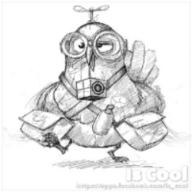請問onto、on、upon ;into、in 有咩分別??
另外,好多時都用to,但to又點解呢??
to-do同to do又係點解,是一樣嗎??
唔該哂~~
English < >~~
2008-08-14 2:53 am
回答 (1)
2008-08-14 1:47 pm
✔ 最佳答案
1) 首先, 我先解釋 to-do 和 to do, 其實 to-do 係由 to 和 do 兩個字組合而成的字, 這個係 compound noun。例如, to-do list 係工作事項表 (類似備忘錄的東西), 用作提醒自己將要做的事。(todolistblog.blogspot.com)
To do 照字面去解係「去做」, 而to do 這型式的用法係叫 to-infinitive (當中的動詞do係永達都無時式的轉變)。
I want to study abroad. (present tense)
I wanted to study abroad. (past tense)
其他的compound noun 或者 compound adjective 有很多, 你有見過呢? (en.wikipedia.org/wiki/English_compound )
Compound noun
DIY = Do-it-yourself (外國好興自己落手整理家居, 裝修等, 佢地叫做DIY)
one-piece swimsuit 一件頭泳衣
two-piece bikini 兩件頭比堅尼
multi-storey car park 多層停車場
Compound adjective
first-come, first-served basis (或者寫成 first-come-first-served basis) 先到先得
a middle-aged woman 中年女士
2) onto 和 into 係preposition, 用作形容一個連續性的動作的過程, 而in 和 on 都係preposition, 用作形容一個(靜止的)狀態。
例如
I saw a woman putting a mobile phone onto the desk.
我見到一位女士將手機放在枱面上。 (目睹她放手機在枱面上的過情, 這個是一套動作)
Now the mobile phone is still on the desk.
現在手機仍在枱面上。 (「在枱面上」這個不是動作, 而是一個(靜止的)狀態)
I saw a suspect getting into the room.
我目睹一名可疑人物進入房內。( 目睹「他進入房內」的過情, 這個是一套動作)
Now I think he is still in the room because I didn't see anyone getting out.
現在我估他仍在房內, 因為我見不到有任何人出來。(「他仍在房內」係一個(靜止的)狀態)
3) upon 其實亦都解作 on, 不過用法較 formal。
He lay down upon the grass.
他臥在草地上。
Upon entering the room, she sat down.
當她一進入房內, 她就坐下來。(upon 指在某一刻的時間)
All eyes were upon him.
所有眼光都放在他身上。
He recalled the attacks upon him.
他回憶起他被攻擊的事。(upon 指「發生在他身上」)
雖然 upon 解作 on, 但係upon 有佢自己特定的用法, 未必完全可以當 on 禁用, 所以你要查下字典, 多睇例句去分辨。
圖片參考:http://tw.yimg.com/i/tw/ugc/rte/smiley_1.gif
2008-08-15 02:54:53 補充:
例如, Once upon the time係講故事的開頭 ( 解「好耐好耐之前」, 唔會用on去取代upon)。
2008-08-15 02:58:32 補充:
改正: Once upon (a) time 先啱
參考: Collins Cobuild English Language Dictationary
收錄日期: 2021-04-30 17:31:17
原文連結 [永久失效]:
https://hk.answers.yahoo.com/question/index?qid=20080813000051KK02579

